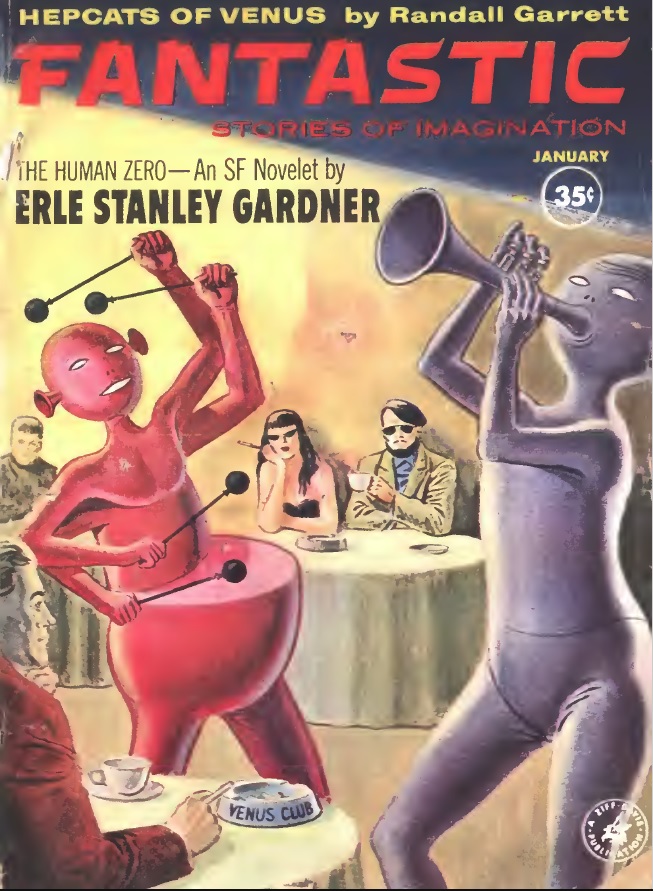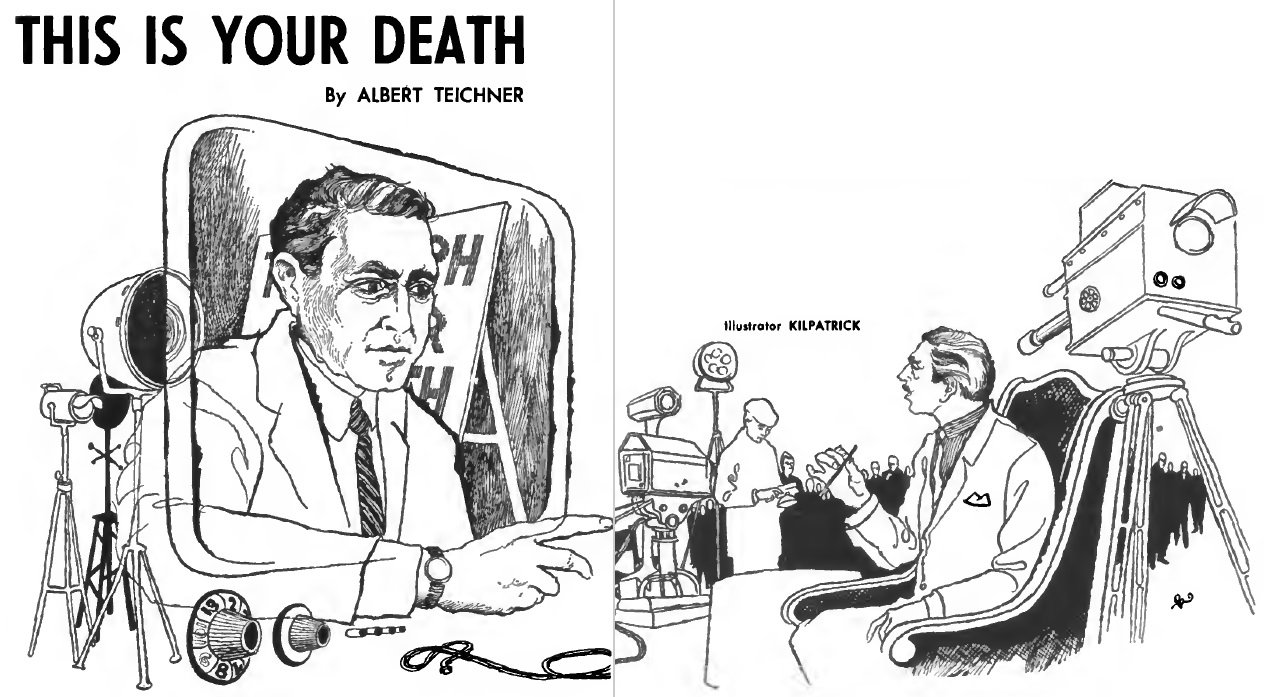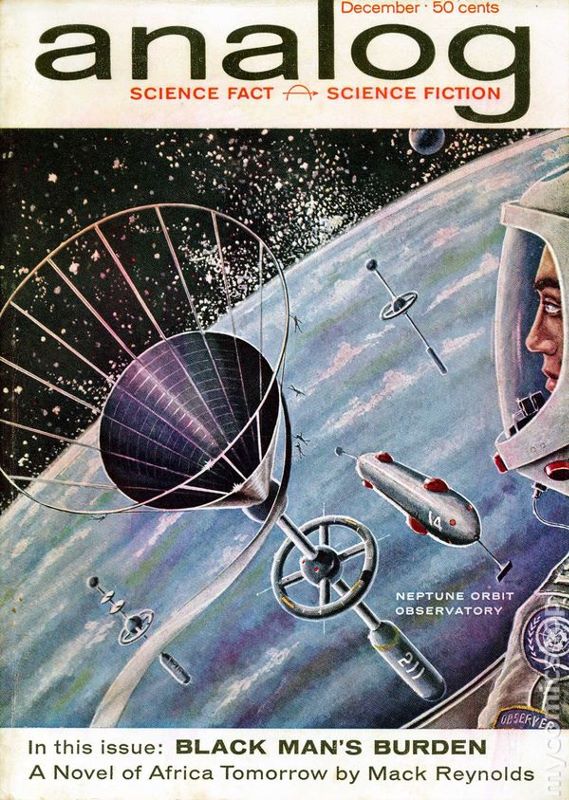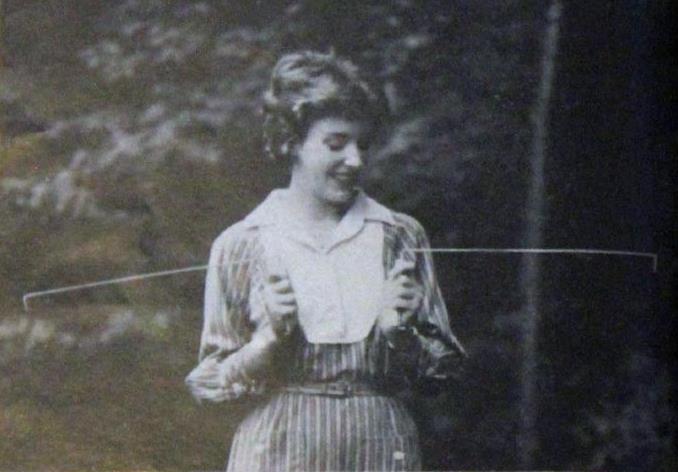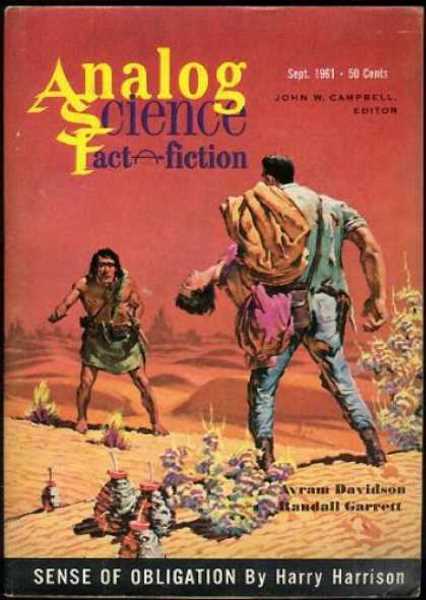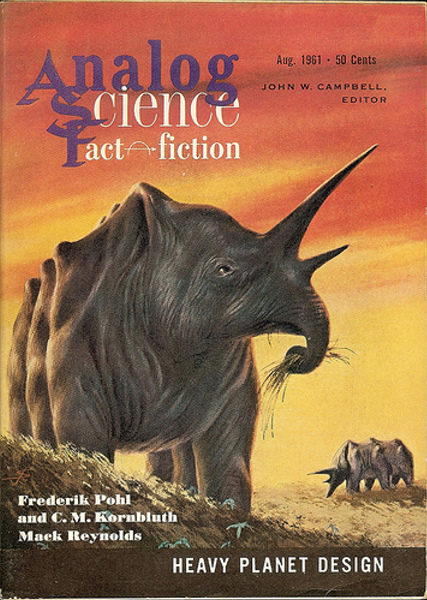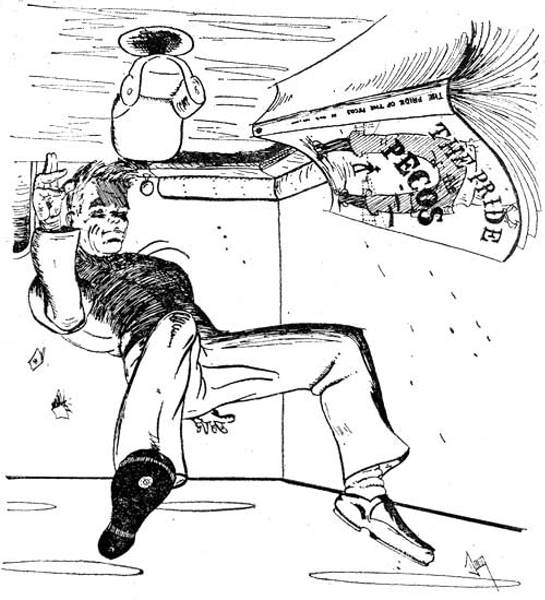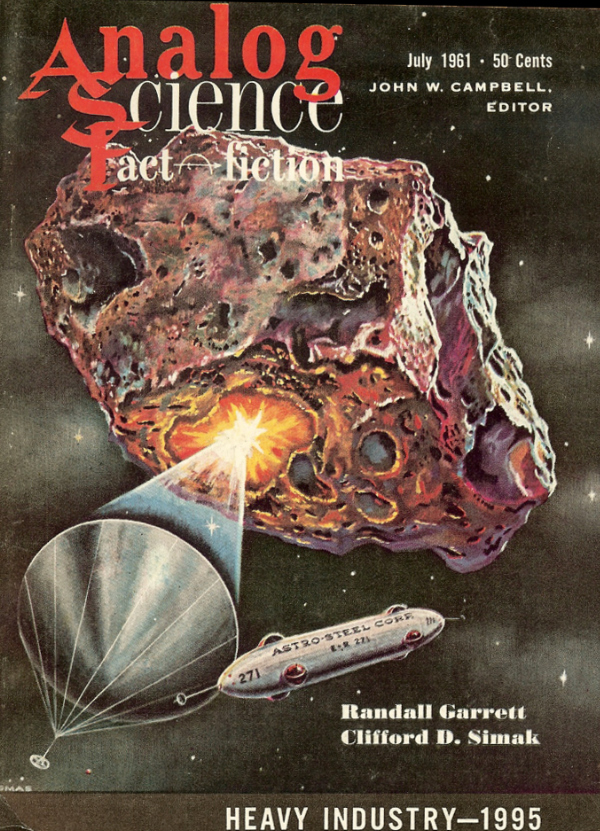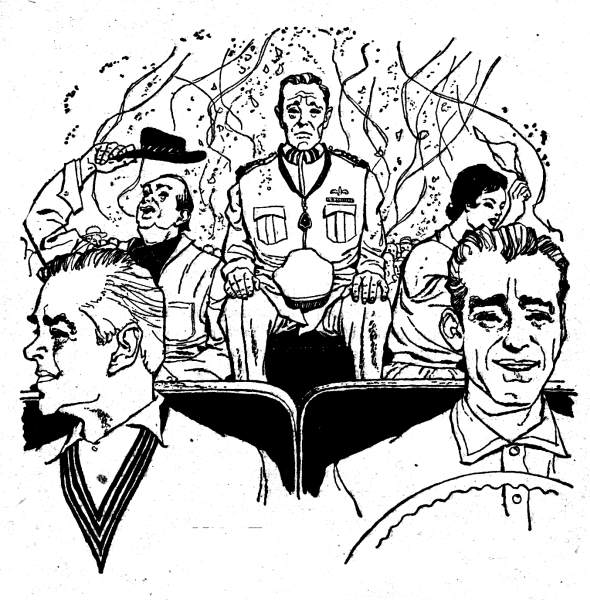
by Gideon Marcus
I said in a recent article that science fiction runs the gamut from the hard-nosed to the fantastic, and that the former can be found most consistently inside the pages of Analog magazine.
Well, the February 1962 issue has proved me a liar.

The problem is Analog's editor, Mr. John W. Campbell. Once a luminary in the field, really hatching an entire genre back in the late 30's, Campbell has degenerated into the crankiest of cranks. And since he offers 3 cents a word for folks to stroke his ego, he necessarily gets a steady stream of bespoke stories guaranteed to be published.
Want to know the secret to getting printed in Analog? Just include psi powers and a healthy dose of anti-establishment pseudo-scientific contrarianism, and you're in like Flynn.
Case in point: this issue's lead story, The Great Gray Plague, by Raymond F. Jones. Never have I seen such a cast of straw men this side of a cornfield. The setup is that the snooty head of a government agency that oversees science grants refuses to consider the bucolic Clearwater College as a candidate because they rank so low on the "Index." Said "Index" comprises a set of qualifications, some reasonable like the ratio of doctorates to students and published papers per year, to the ridiculous like ratio of tuxedoes to sport coats owned by the faculty and the genetic pedigree of the staff. Thus, the "Index" serves as a sort of Poll Tax for institutions, making sure only the right kind remain moneyed. The Dean of Clearwater makes an impassioned argument to the government employee that such a narrow protocol means thousands of worthy scientists and their inventions get snubbed every year in favor of established science.
So far, so good, I guess. But then, as if on cue, a pair of "crackpot" farmers submit a request for review of a telepathic crystal they've developed. Of course, the government man dismisses the request out of hand. Of course, the progressive Dean investigates. Of course the thing works. And, of course, one of the crackpots is really an alien testing humanity's ability to assimilate science that doesn't gibe with current theory (and if you didn't figure that twist out immediately, you're reading the wrong stuff).
Now, there is merit to the idea that science is not a gradual evolution towards perfection. In fact, Historian of Science Dr. Thomas Kuhn recently advanced the notion that science works within "paradigms" that are only overthrown with some violence and replaced with other paradigms. For instance, there was no gentle, step-by-step transition from Ptolemy to Copernicus – the Sun went around the Earth, and the data was squeezed into that model (however ill-fitting) until suddenly the Earth was determined to orbit the Sun and everything fit into place. Another example is phlogiston theory, which almost did a good job of explaining why substances gained weight when they burned…said theory being turned on its ear when the true nature of oxidation was discovered.
However, Plague isn't really making Kuhn's point. It's making Campbell's, which is, in short, "If all these highfalutin 'scientists' would actually give a chance to people pushing psi, reactionless drives, and perpetual motion machines, then they'd quickly see the merit to these 'crackpot' ideas."
Sorry, John. Whatever bad things one might say about inertia in the scientific establishment, the fact is that it exists for a reason. Science must, necessarily, be incredulous. It must seek out and process data according to the scientific method. And let's be honest, John – science has given the Dean Drive and the Heironymous Machine and Dr. Rhine a fair shot. They've been found wanting. Give it up and stop kneeling at the altar of charlatans like L. Ron Hubbard.
Or turn over Analog's reins to someone else. There's a paradigm shift I'd love to see.
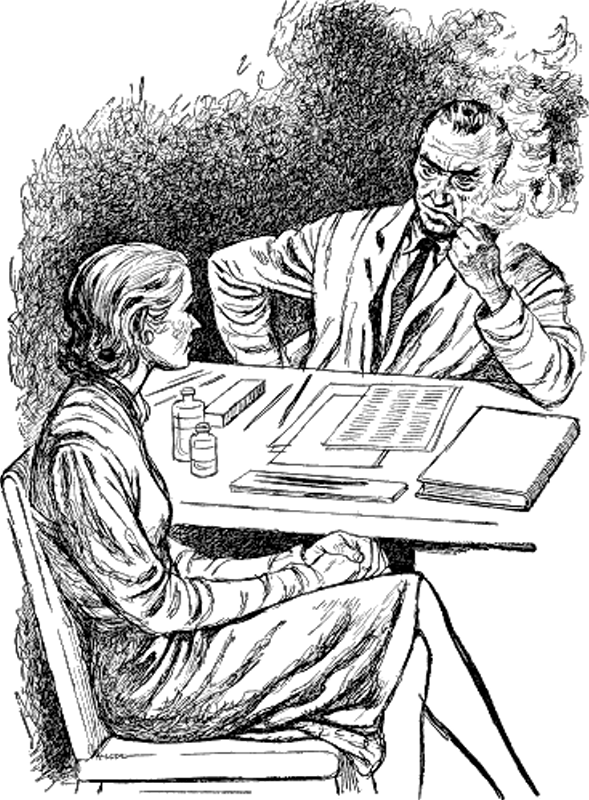
Having used up so much space with the above rant, I shall endeavor to be brief with the rest. Pandemic, by the consistent J. F. Bone, is a gripping, grim tale of planetary disaster…with a rather silly resolution. If anything, however, the first three quarters of the story give ample evidence that Bone can write – does he have any novels in print I don't know about? Three stars.
This month's science fact article, Power Supplies for Space Vehicles (Part 1 of 2) by J. B. Friedenberg is a refreshing departure from Analog's usual offerings, featuring as it does actual science. Friendeberg's piece discusses photovoltaic, thermoelectric, and thermionic power supplies in a comprehensive (if unentertaining) fashion. About as much fun as reading the encyclopedia, which I generally enjoy, but you may not. Two stars.
Neil Goble is a brand new author from Okie whose cute Master of None hints at a fair talent to come. The story's moral: pursuit of knowledge for knowledge's sake is a worthy endeavor. I heartily agree. Three stars.
That leaves Hail to the Chief by "Sam and Janet Argo." It's a meandering piece about the lengths to which a politician goes to get a non-politician elected President of the United States. It's not particularly plausible, nor is it remotely science fiction, seemingly more a platform for a series of puns on the candidate's name ("Cannon"). This is a story with Randy Garrett's fingerprints all over it. Two stars.
Thus ends the worst issue of Analog since the magazine took on the new moniker. The proof is in the pudding, and Chef John's fare is poor stuff indeed. I hope we get a new cook soon.
(By the way, it certainly seems that this month's cover was influenced by the new tower planned for Los Angeles airport – you decide…)



